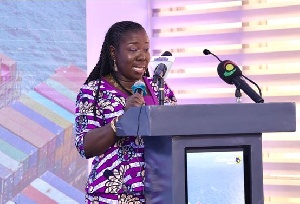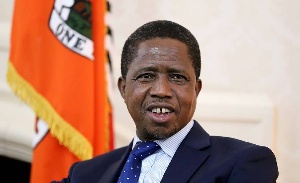Business News of Thursday, 29 May 2025
Source: www.ghanawebbers.com
Trade minister urges stakeholder collaboration to grow exports
The FirstBank Ghana and African Import and Export Solutions (AfricanIES) Exporters Forum took place in Accra. It was held in collaboration with the Ghana Export Promotion Authority (GEPA).
The forum aimed to empower exporters and boost the non-oil export sector. Key stakeholders included exporters, trade experts, regulators, and financial advisors. They discussed opportunities, challenges, and solutions for expanding businesses.
Market access and financing were major topics of discussion. Participants networked with industry experts and potential partners. They shared experiences to promote collective growth in the sector.
Victor Yaw Asante, Managing Director of First Bank Ghana, emphasized the importance of training. He expressed First Bank's commitment to providing financial solutions for SMEs. "We aim to enhance the export capacity of SMEs," he said.
Ghana's exports rose significantly in 2024, leading to a trade surplus. Exports reached GH¢294.9 billion in 2024 from GH¢186 billion in 2023. This surpassed total imports of GH¢250.2 billion during the same period.
However, a real trade deficit still exists. The Ghana Statistical Service reported a deficit of GH¢4.7 billion in 2024. Non-Traditional Exports earnings fell by 2.87 percent to US$3.83 billion due to reduced iron and steel exports.
To address this decline, the government is working through the Accelerated Export Development Advisory Committee. They aim to improve the export sector and create jobs for Ghanaians.
The minister mentioned plans to remove demurrage charges on weekends and holidays. She also aims to resolve inconsistent exchange rates at ports affecting exporters' costs.
"We are reviewing these policies," she stated, emphasizing that exporters should not face penalties for delays beyond their control.
The government is prioritizing port efficiency by collaborating with relevant agencies. They plan to enforce existing laws and streamline Customs procedures for better transparency.
Regarding cedi appreciation against major currencies, the Trade Minister noted it benefits everyone involved. Stable cedi rates will lower imported raw material costs and production expenses.
Large companies now have until December 30, 2025, to comply with EU Deforestation Regulation (EUDR). Small enterprises have until mid-2026 for compliance under this regulation.
Businesses trading agricultural products or timber must prove their products are deforestation-free under EUDR guidelines.
In light of evolving EU regulations, discussions are underway with the European Union about stationing inspectors in Ghana. This initiative aims for pre-shipment inspections of perishable goods before they leave ports.
Honorable Ofosu-Adjare stated that upgrading local laboratories is essential for international standards compliance.
"We are building an ecosystem that allows Ghanaian products to compete globally," she added.











